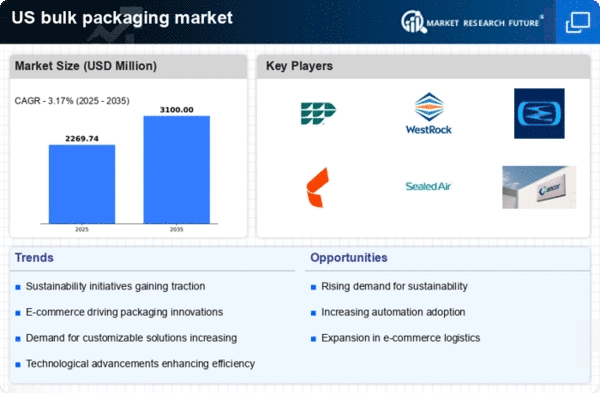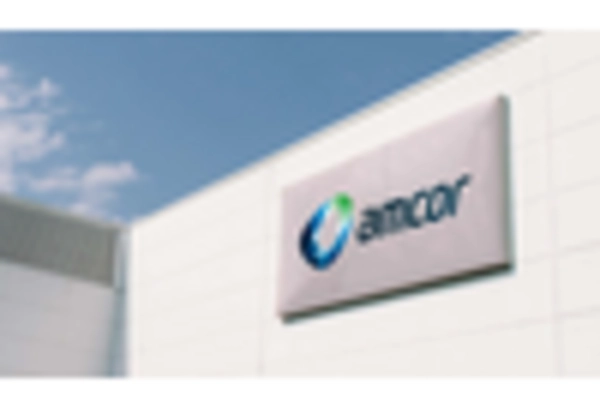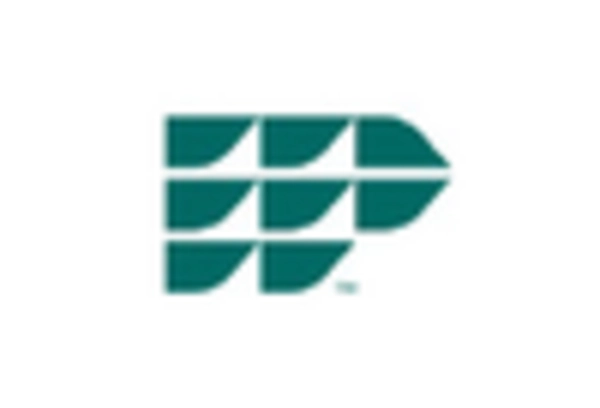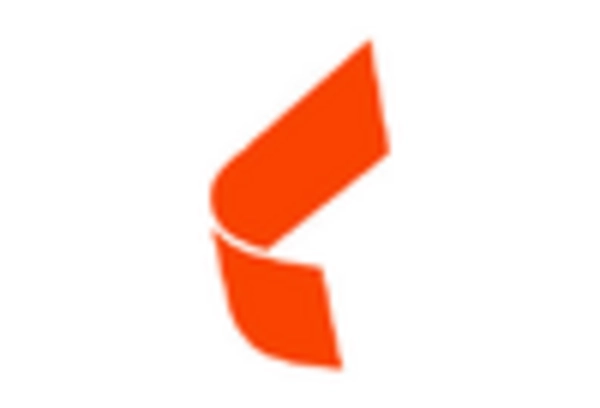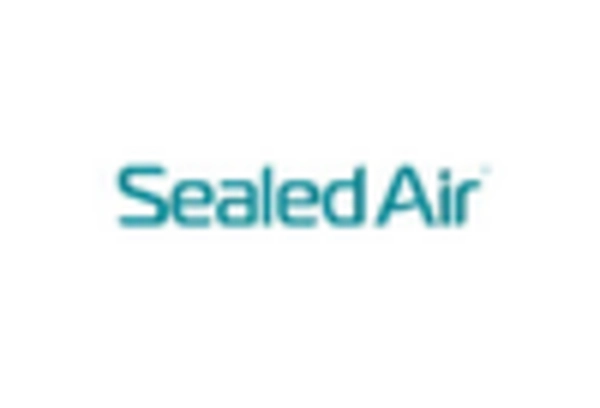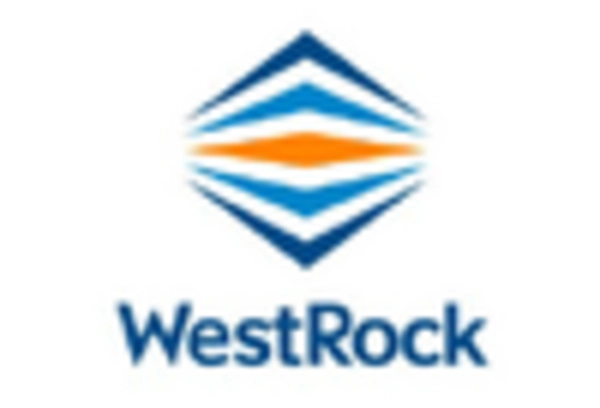Increasing Focus on Cost Efficiency
The bulk packaging market is experiencing a heightened focus on cost efficiency as businesses seek to optimize their operations. Rising raw material costs and competitive pressures are compelling manufacturers to explore bulk packaging solutions that minimize expenses while maximizing value. By utilizing bulk packaging, companies can reduce packaging waste and lower shipping costs, which is particularly beneficial in a market characterized by tight margins. Additionally, bulk packaging often allows for more efficient storage and handling, further contributing to cost savings. This emphasis on cost efficiency is likely to drive demand for innovative packaging solutions that balance quality and affordability, positioning the bulk packaging market for sustained growth in the coming years.
Growth in E-Commerce and Online Retail
The bulk packaging market is significantly influenced by the rapid growth of e-commerce and online retail. As more consumers opt for online shopping, the demand for bulk packaging solutions that ensure product safety during transit is increasing. In 2025, e-commerce sales in the US are projected to reach approximately $1 trillion, highlighting the need for efficient packaging solutions. Bulk packaging not only reduces shipping costs but also minimizes the risk of product damage, making it an attractive option for retailers. This trend is prompting manufacturers to develop packaging that is not only cost-effective but also capable of withstanding the rigors of transportation. As a result, the bulk packaging market is likely to expand in response to the evolving needs of the e-commerce sector, creating new opportunities for innovation and growth.
Technological Innovations in Packaging
The bulk packaging market is witnessing a surge in technological innovations that enhance packaging efficiency and functionality. Advancements in automation, smart packaging, and materials science are transforming how bulk packaging is produced and utilized. For instance, the integration of IoT technology allows for real-time tracking of shipments, improving supply chain transparency. Furthermore, the development of advanced materials, such as lightweight composites, is enabling manufacturers to reduce material usage while maintaining strength and durability. This technological evolution is expected to drive growth in the bulk packaging market, as companies seek to optimize their operations and meet the demands of modern consumers. The potential for increased efficiency and reduced costs through these innovations positions the bulk packaging market favorably for future expansion.
Rising Demand for Eco-Friendly Solutions
The bulk packaging market is experiencing a notable shift towards eco-friendly solutions, driven by increasing consumer awareness regarding environmental sustainability. As businesses strive to reduce their carbon footprint, the demand for biodegradable and recyclable packaging materials is on the rise. According to recent data, approximately 70% of consumers in the US express a preference for sustainable packaging options. This trend is compelling manufacturers to innovate and adopt greener practices, thereby enhancing their market competitiveness. The transition to eco-friendly bulk packaging not only aligns with consumer preferences but also meets regulatory requirements aimed at reducing plastic waste. Consequently, this driver is likely to shape the future landscape of the bulk packaging market, as companies that prioritize sustainability may gain a significant advantage in attracting environmentally conscious consumers.
Regulatory Compliance and Safety Standards
The bulk packaging market is increasingly shaped by stringent regulatory compliance and safety standards. In the US, regulations governing packaging materials and safety protocols are becoming more rigorous, necessitating that manufacturers adhere to specific guidelines. This compliance is crucial for ensuring product safety and maintaining consumer trust. As a result, companies are investing in high-quality materials and processes that meet these standards, which may lead to increased operational costs. However, adherence to safety regulations can also serve as a competitive advantage, as consumers are more likely to choose products that are packaged in compliance with safety standards. Therefore, the emphasis on regulatory compliance is likely to drive innovation and quality improvements within the bulk packaging market.
.png)

